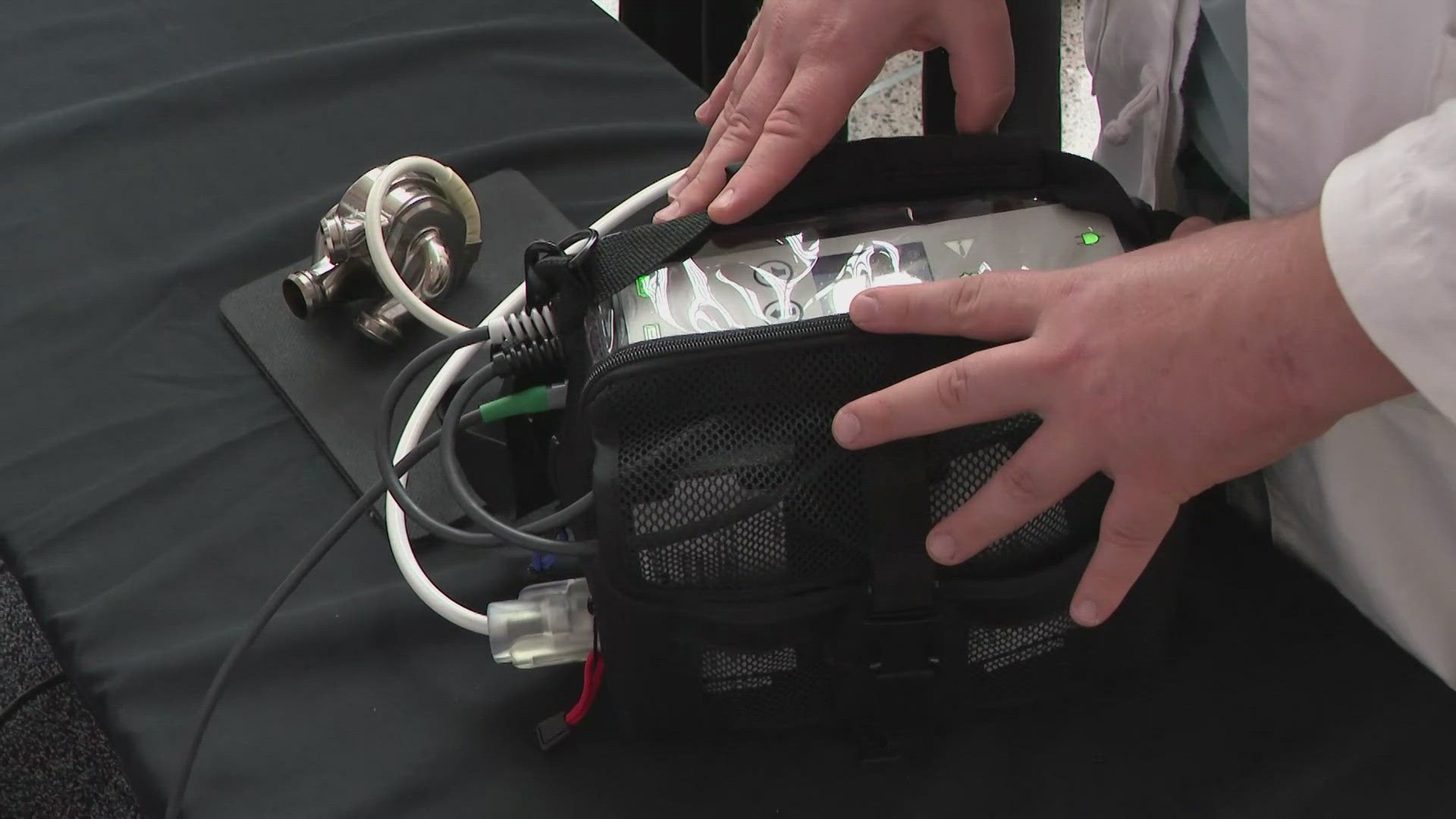HOUSTON — A novel valveless artificial heart has been implanted into a human with end-stage heart failure for the first time, the Texas Heart Institute (THI) announced on Thursday. The procedure took place at Baylor St. Luke's Medical Center in the Texas Medical Center and surgeons say it could be a gamechanger.
Editor's note: A previous version of this story said this was the first total artificial heart implanted in a human. It has since been corrected to say this is the first novel valveless artificial heart implanted in a human. KHOU 11 made this update after seeking clarification from doctors involved with the artificial heart during a news conference Thursday.
The implant was done as a part of the Food and Drug Administration's Early Feasibility Study for BiVACOR's artificial heart implant.
The device is made of titanium and has a single moving part that uses magnets to pump blood. BiVACOR said it should never really wear out because of the design.
THI said BiVACOR's Total Artificial Heart (TAH) aims to treat patients with severe heart failure while they wait for a transplant. An estimated 250,000 Americans wait for approximately 6,000 donor hearts each year.
The current mechanical hearts last about 90 days on average with one outlier lasting seven years.
"I ended up doing more heart transplants than anyone in the world and that taught me that they're temporary," Dr. O.H. "Bud" Frazier said. "You know, when the patients start dying after five years, ten years, we've got to do something better."
With the first BiVACOR implant successfully completed, THI said more patients will be enrolled in the study.
"With heart failure remaining a leading cause of mortality globally, the BiVACOR TAH offers a beacon of hope for countless patients awaiting a heart transplant,” said Dr. Joseph Rogers, THI president and CEO and national principal investigator on the research.
BiVACOR said their device draws less power than its predecessors and could one day operate using small batteries implanted under the skin so patients would be wireless rather than carrying a backpack.
"Together, we are ushering in a new era of hope for patients with end-stage heart failure," Baylor St. Luke's Medical Center Brad Lembcke said.
Daniel Timms, PhD, the chief technology officer and founder of BiVACOR, praised the patient and his family's courage in undergoing the procedure. He has since received a transplanted heart and he just celebrated his 58th birthday.

